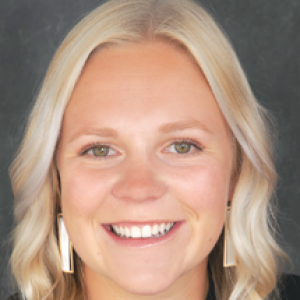By Evelyn Pyburn
While most businesses have been able to reopen following their forced closure because of concerns about COVID-19, the struggle and uncertainty about their future fate isn’t over for many business owners. Economic commentators say it will probably take two years before the full impact on businesses will be known.
It’s true that many businesses dealing in products and services that have come into high demand are doing very well – but even they struggle with meeting those demands while still maintaining health and safety protocols. Not being able to fully reopen because of those protocols has kept some businesses teetering on the edge and for others new impacts of COVID are placing even more stress on their business.
The new worry is about an employee testing positive for COVID and having the health department put everyone under quarantine, effectively re -closing the business. Besides lost business, the employer is required to continue paying the employees even though there is no income. So while the employees are made whole, there exists the possibility that the economic damage done will leave them with no job if their employer goes out of business.
Some state and federal programs have helped in sustaining businesses and provide funds to help in paying employees, but the disruption still takes a toll and in some cases there is a stigma attached to the virus that dissuades the return of customers or clients. Because of that, many businesses are reluctant to even talk about their dilemma.
Everyone was well aware from the very beginning of the impact on restaurants and bars. A general count seems to indicate that about a dozen restaurants have closed in the Billings area. Others are hanging on but it is difficult for those with limited space. Being able to operate at 50 or 75 percent capacity, which is one of the restrictions under which they must operate, just isn’t enough to cover basic operating costs for some and so they remain closed.
While the cancellation of events like concerts, fairs, trade shows and arts/crafts shows may at first blush seem just a disappointment for spectators they also reflect lost business for many whose livelihoods are event- oriented, which include not only the hospitality industry but also those who provide the infrastructure for such gatherings and those who sell their art and products through those venues.
At the same time, almost any kind of business that has anything to do with construction or selling equipment and materials for that industry, have exploded and can hardly keep up.
Each business has their own story to tell.
Q Art & Framing
By the time the Governor closed businesses in the state, it didn’t make much difference to John Armstrong. “My business was slowing way down just because people were getting apprehensive,” he said. Armstrong owns Q’s Art and Framing at 1511 6th Avenue N. in Billings, a business that sells fine art and art supplies and does framing. It also features weekly art classes.
“Business was so dead I didn’t think it was worth it to stay open.” Besides closing the doors for a couple months, Armstrong cancelled all art classes.
“It was scary,” he said.
Armstrong owns the building in which his business is located and he has tenants with businesses. “We were all in the same boat,” he said. One of his tenants had to quit, leaving him with a vacancy. “So I kinda got hit with both barrels.”
He has reopened, but business is slow in re-building – the sale of art is “zero”, and “We just don’t have the foot traffic.” Armstrong says he is hopeful and, “I think we are going to make it through.” That wouldn’t be the case though if it were not for the state and federal funding programs … and a $250 credit from Northwestern Energy.
The framing part of business has been doing well, and art classes have resumed, but remain constrained because of spacing issues.
“I feel very blessed to be on as solid ground as I am,” said Armstrong, expressing gratitude. ”I feel that the community is supporting me. A lot of the business that came in August was people wanting to support me.”
Black Dagger Tattoo
Gyms, salons, barbers and tattoo parlors were especially hard hit.
Sean Sapone, a co-owner of Black Dagger Tattoo in downtown Billings, 2914 1st Avenue N., is still only partially open. He is accepting only one appointment a day, whereas a normal schedule would be two or three appointments a day, and walk-in traffic is curtailed completely. So business has dropped from 10 – 15 clients a week to only five, at the most.
Being self-employed, Sapone has relied on his savings to make it through a two –month business-closure. Sapone said that because of having a family member who is highly vulnerable, he imposed greater restraints on himself, and continues to do so. He noted that given how close people must be in his business, the safety and cleanliness protocols are of great importance and they have strictly adhered to them which makes their work difficult.
Black Dagger Tattoo was started in 2016, and was doing very well and growing, according to Sapone. So, the COVID crisis was a devastating blow to a new and vital small business. Functioning very much like hair salons do with subcontractors leasing space and cultivating their own clients, Sapone said that those individuals, being self-employed are having to fare on their own, perhaps getting some benefits from the government programs. They may be in an even more perilous position, he noted, since some were likely just building their clientele and were more dependent on the public exposure of an open shop.
About the future, Sapone said that he is “not necessarily optimistic.” “I am worried about it,” he said. He doesn’t see a lot of options, but “I think we will survive it.”
R &R Salon
It was the first time since she was 15 –years- old that Rachel Markowski had a whole month off. Markowski owns R & R Salon, a hair and beauty salon at 1001 S. 24th Street, which includes a small retail outlet for jewelry, some clothing and gift items. Having to close the business was an immediate end to her income, as well as for the beauticians who sub-contracted with the business.
Worry about what the future held was probably the worst of the situation for Markowski, who at least had the financial backup of her husband’s job, which was categorized as “essential.” They own a small acreage just outside of town and Markowski said, “I was glad to have the farm to tend to, to keep me busy and keep me from worrying.” Markowski said that she used the time to do things that she hadn’t been able to do when working full time and enjoyed being able to do things like gardening and food preservation.
She also used the time to develop a website for the retail sales part of her business.
The landlord of her business location reduced rent by half for the month of May, which was very helpful, said Markowski, who otherwise relied on savings she had for such emergencies. She did not apply for any of the government programs. “I just toughed it out,” she said.
While they cut back on spending, when the Markowskis did spend money – like so many others they tried as much as possible to support local small businesses.
Most of her clientele has come back in force. Their pent-up demand has kept Markowski and the others in her shop very busy, working overtime because of the need to space out appointments to keep the number of people in the shop at a minimum. “I’m just tired of having to wear a mask,” she lamented.
Lackman Cattle
Being able to get assistance from the first round of federal funding under the CARES Act was vital for sustaining his business of farming and feeding cattle west of Billings, Luke Lackman told members of the Chamber of Commerce’s Ag Tour on Friday. Lackman’s family business was staggered by the unexpected cancellation of a contract for barley by a brewing company, just days after having invested the cost of planting it.
He wasn’t the only farmer in Montana who was broadsided by such contract withdrawals, which without the government rescue funding would probably have bankrupted many of them. Brewing companies were concerned that because of the COVID crisis beer consumption would be far less than projected – although one member of the tour group told Lackman that he and his friends were trying to do as they could to support that aspect of the economy.
Western Romance
Without doubt the hardest hit industry sector was tourism, which included motels, restaurants and bars, but also included businesses like Western Romance Company in Huntley, which since 1999 has contracted with bus tour companies to provide an evening of entertainment, cowboy poetry, and singing and yodeling around the campfire, accompanied by an old-fashioned cookout.
Owners, Dennis (also known as Pappy) and Norma McNiven, were stunned this past summer to lose essentially all of this year’s business. Normally, they are booked from May through October with about 56 events with 30 to 54 people in each group. This year started out with 56 bookings scheduled, of which all but one cancelled. Not only did the McNivens lose a significant source of income so did two subcontractors and some eleven part-time employees, as did the local motels, and many other aspects of the hospitality business in Billings.
“First we were notified by Trafalgar Tours and Discovery Parks Tour in March that they were cancelling everything globally because of COVID until June 30, and then they notified us they were cancelling everything until September 2,” explained Norma. Then in the latter part of July they cancelled everything else through October 28. It totally wiped out the whole season,” she lamented.
Only one scaled-down booking in August moved forward, for which the McNivens hosted eleven guests rather than their minimum group size of 30. That event was able to be held because the booking company used their own buses; the other events were booked through companies that leased their buses from transportation companies that had to cease operations through the whole summer since they couldn’t meet the requirements for social distancing.
Whether Western Romance Company will continue business come next summer is uncertain. The McNivens are not particularly optimistic. “We just don’t know what will happen,” said Norma.
While they have applied for some assistance, what they have received has been minimal, and while they qualify for more, they have been told they are on a waiting list of some 7 million businesses and “we will contact you.”
Asked how they have survived, Norma said that they were prepared for adversity. “I never counted on Western Romance to do stuff. We have a commercial loan at the bank, which we renewed, and we hope we can make it through.”



